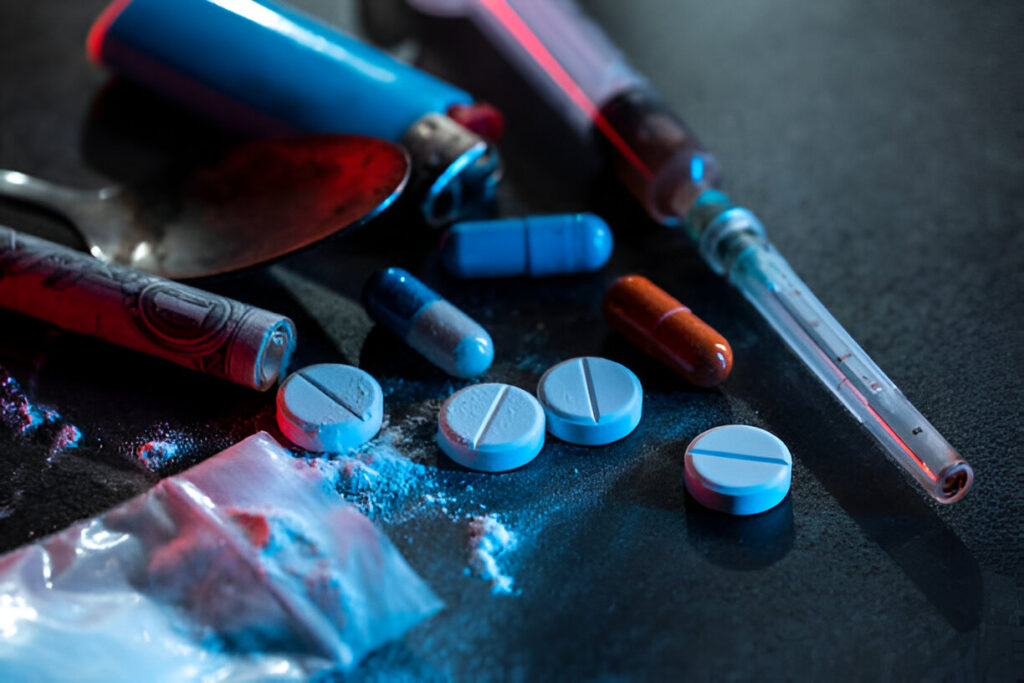Drug addiction impacts millions, straining relationships, careers, and lives. However, recovery is possible. This article explores the challenges of addiction, the recovery process, and offers hope and actionable steps for those seeking to overcome it.
Understanding the Abyss
Drug addiction is more than just a bad habit; it’s a chronic disease with gripping psychological, emotional, and physical dimensions. Many who experience it describe a downward spiral or an “abyss” that becomes increasingly difficult to escape. To understand addiction fully, it’s important to acknowledge its various components.
The Physical Dependency
Drugs hijack the brain’s reward system, releasing chemicals like dopamine that create feelings of pleasure. Over time, the brain adapts to this surge in dopamine, requiring more of the substance to replicate the same effect. The result? Growing tolerance and physical dependency that can lead to withdrawal symptoms when the substance is absent.
The Psychological Tug-of-War
For many, addiction isn’t just physical—it’s deeply psychological. Stress, trauma, mental health disorders, and even genetic predisposition can draw individuals toward substance use as a coping mechanism. Breaking free feels nearly impossible when drugs become a source of comfort and stability.
The Social and Environmental Grip
Peer pressure, familial influences, or exposure to environments where drugs are readily available can intensify addiction. These external factors create a web of triggers that can make quitting an uphill struggle.
But here’s the good news—no matter how deep the abyss, recovery is possible.
The Journey of Recovery
Recovery from drug addiction is not a one-size-fits-all process. It’s a deeply personal and often winding path that requires commitment, courage, and a combination of strategies tailored to the individual.
Medical Treatments
Medical professionals play a critical role in recovery. Treatments such as detoxification (detox) help individuals safely manage withdrawal symptoms. For some, medication-assisted treatment (MAT) using options like methadone, buprenorphine, or naltrexone can be life-changing in reducing cravings and preventing relapse.
Therapy and Counseling
Understanding the “why” behind addiction is vital, and therapy provides the tools to explore underlying causes. Common approaches include:
- Cognitive Behavioral Therapy (CBT): Helps individuals recognize and change harmful thought patterns.
- Motivational Interviewing (MI): Encourages patients to increase their motivation and commitment to change.
- Family Therapy: Strengthens family support systems as vital allies in recovery.
Support Groups
You don’t have to go through this alone. Organizations like Alcoholics Anonymous (AA) and Narcotics Anonymous (NA) offer free, inclusive spaces to connect with others facing similar struggles. Peer support fuels accountability and provides invaluable encouragement during tough moments.
Overcoming the Abyss
While the road to recovery is challenging, countless people have emerged triumphant. Their stories serve as powerful testimonies to resilience, hope, and unwavering determination.
Practical Tips for Recovery
- Set Realistic Goals: Recovery is a marathon, not a sprint. Celebrate small wins along the way.
- Avoid Triggers: Create a plan to steer clear of people, places, or situations that provoke cravings.
- Build New Habits: Fill your days with healthy, fulfilling activities—whether it’s exercise, art, or volunteering.
Relapse Prevention
Relapse is common but does not signify failure. Recognizing triggers early and reaching out for help when you feel vulnerable can prevent a return to old habits. Many find it helpful to build relapse plans with the help of therapists, recovery coaches, or drug rehab like those available in Idaho.
Building a Supportive Community
No one recovers alone. The love and support of family, friends, and the broader community can make a world of difference on the road to sobriety.
The Role of Family and Friends
Loved ones are often a recovering individual’s most reliable allies. They offer emotional support, encouragement, and accountability. However, it’s equally important for supporters to educate themselves about addiction, set healthy boundaries, and practice self-care.
Becoming Part of a Recovery Community
Many organizations facilitate recovery-focused communities beyond traditional support groups. Social media groups, sober living homes, and local sober meet-ups unite individuals who understand the unique struggles of addiction and recovery. These bonds forge networks of care that help individuals stay motivated and focused.
How to Foster a Supportive Environment
- Encourage open, honest communication.
- Celebrate milestones and progress.
- Avoid judgment and focus on listening.
Together, a strong support system and personal determination can overcome even the deepest abyss.
The Road Ahead
Life after addiction has its highs and lows. Rebuilding a life often means creating new connections, pursuing personal goals, and redefining one’s identity. This can feel both exciting and daunting.
Rebuilding a Life
Many find purpose in pursuing education, careers, or passions they had once placed on hold. Whether it’s rekindling relationships, traveling, or helping others on their recovery journeys, life after addiction offers endless possibilities.
Practicing Long-Term Sobriety
Sobriety isn’t just about “not using”; it’s about living a healthier, holistic life. Practices like mindfulness, routine exercise, and maintaining a gratitude journal can help reinforce personal growth.
Finding Fulfillment
Recovery isn’t merely about surviving—it’s about thriving. The road ahead transforms challenges into opportunities for self-discovery, strength, and joy.
Your Recovery Begins Today
Choosing to address addiction is one of life’s most courageous steps. No matter where you are, remember this—you are never beyond help, and brighter days are within reach.
If you’re struggling with addiction or supporting someone who is, please seek help. Reach out to local recovery centers, therapists, or trusted organizations like SAMHSA’s National Helpline (1-800-662-4357) for free, confidential guidance.
The way out of the abyss is one step at a time—and you don’t have to take those steps alone.
Conclusion
Now that we have explored the depths of addiction, recovery, and building a supportive community, it’s evident that no two journeys are alike. Yet, what remains universal is that there is always hope for healing and change. to a


